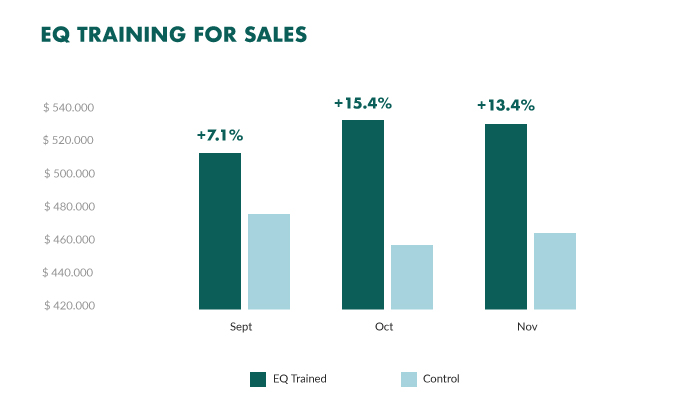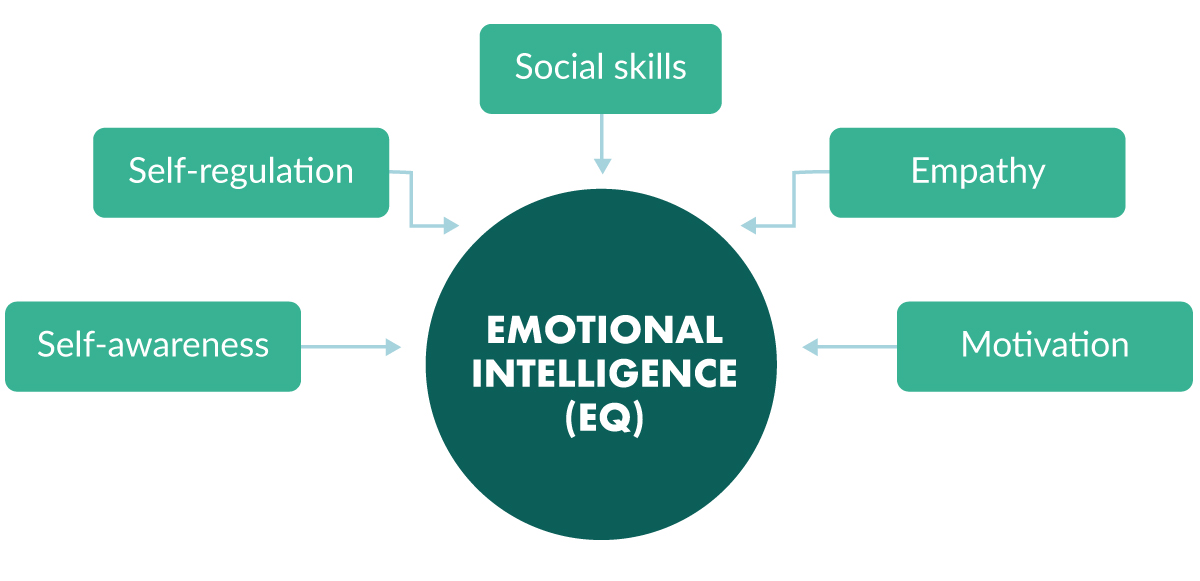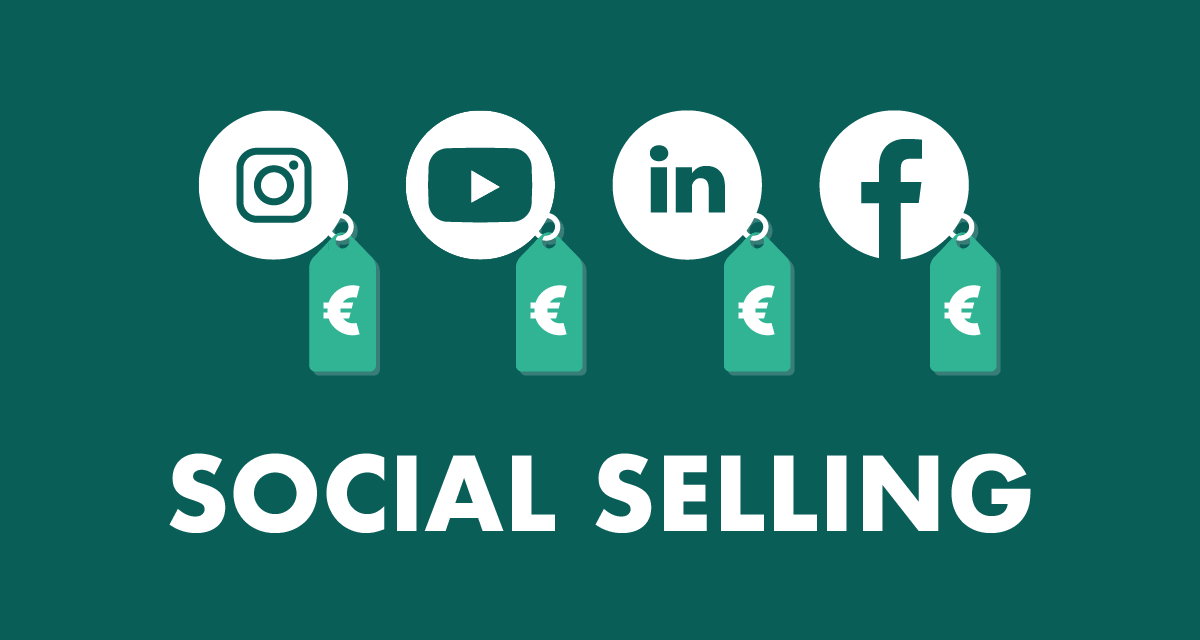Ever feel frustrated by the signals you’re giving off to somebody that they’re just not picking up?
The leads in your sales pipeline might feel the same thing when they’re talking to your sales team.
It’s easy for salespeople to feel so passionate about the product or service they’re selling that it becomes too overpowering for the customer. Leads want to know how the product helps them; not necessarily a list of the features you have to offer.
The ability to understand that comes through emotional intelligence.
In this article, we’ll discuss:
- What emotional intelligence is
- Why EQ is important for sales teams
- How to teach emotional intelligence to salespeople
What is emotional intelligence (EQ)?
Wondering what emotional intelligence is?
Also known as Emotional Quotient (EQ), it’s the ability to understand the thoughts and feelings of somebody else.
For example, sales reps with high EQ know how to put themselves in customers’ shoes, hear their needs, acknowledge their concerns and treat them accordingly.
It’s not just a fancy psychological checkbox to tick when talking to customers, though. It’s reported that emotional intelligence is responsible for 58% of professional success. In fact, for each percentage-point increase in EQ, a person can add $1,300 to their annual salary.
It's no wonder then why the World Economic Forum ranked emotional intelligence as one of the most important skills to have by 2025.
Why is emotional intelligence important in sales?
Apart from professional success and a salary increase, what else makes EQ a crucial personality trait for salespeople?
It helps solve customer problems
As we’ve already established, emotional intelligence is the ability to identify and understand customers’ thoughts and feelings and act accordingly.
Putting that into perspective: if you were on the customer’s side, you’d want your sales rep to go above and beyond to help you. The main idea behind the true emotional intelligence is not to make the customer feel pressured into making a purchase, but to actively listen to your customers’ concerns.
Ethan Taub, CEO of Billry, explains:
“Emotional intelligence is about knowing about people and how they feel about things.
You need to be there to support them, but you also need to be willing to give them the space, so they can come to the decision that they want to.”
An emotionally intelligent salesperson is aware of the problem the customer is trying to solve. By mentioning or voicing this problem out loud and acknowledging it in a conversation, followed by a demonstration how your product can resolve it – a sales rep can demonstrate EQ.
The key here is to be honest on what can be resolved, how and when it can be done, and then allow the customer time to take your proposal in.
It helps decrease staff turnover
The process of firing and hiring staff is tough.
Not only does it waste valuable time you could otherwise spend developing your team, but it can also cause issues with the sales experience you’re offering to your customers. Each new hire needs to be trained and then brought up to speed.
However, selecting salespeople on the basis of their emotional competence actually results in 63% less turnover during the first year!
And the more reps you can keep on-board by developing their emotional intelligence, the less time you’ll have to spend on hiring and training new staff.
It helps generate more revenue
Salespeople’s job is to sell.
But with the EQ training, they can bring your business even more cash. Studies show that sales reps with high emotional intelligence produced twice the revenue of those with average or below average scores.
In fact, one company tested whether the EQ training helped their reps to close more deals. The result?
Sales reps who received the emotional intelligence training outsold the control group by an average of 12%. That equated to over $55,000 each. Meanwhile, the ROI for the EQ training was $6.

How to teach emotional intelligence to salespeople
Traditionally, emotional intelligence is considered a soft skill that comes naturally to some people and not others.
However, the person who helped to popularize EQ, Daniel Goleman, claimed that it can be developed and defined in five EQ categories:
- Self-awareness
- Self-regulation
- Social skills
- Empathy
- Motivation

Sales training that focuses on all five areas can help your reps build emotional intelligence in time.
Here’s how you can do it.
1. Build self-awareness with regular check-ins
It’s easy to fall into the routine of neglecting one-on-one meetings with your staff. You think a team-wide monthly check-in is enough to report and reflect on goals.
But it’s key to schedule regular check-ins with each staff member on your sales team.
Why? Because it’s the only time you can really dive deep into their strengths and weaknesses. For example, you can explain how they do a great job at converting leads on the phone, but aren’t so great at time management.
Don’t be afraid to point out where things can be improved during this sales coaching session.
The more positive and constructive feedback you can give, the more salespeople will be aware of their own skills. That builds the self-awareness aspect needed for emotional intelligence.
2. Allow autonomy for your salespeople
Autonomy is the freedom for your sales reps to do what they think is best in a given situation.
Research from The University of Birmingham shows that giving a workforce autonomy gives positive effects on well-being and job satisfaction.
It also helps build self-regulation – one of the five keys to emotional intelligence.
By allowing sales reps to have autonomy over their work, they need to make their own decisions based on what that specific lead needs and wants.
For example: according to your sales plan, you have to contact your lead via email two/three days after the initial contact. But, the lead previously expressed the need for a sooner follow-up, so they use their own initiative and schedule a call the next day.
If sales reps don’t have autonomy to do what they think is best, they won’t reach optimistic sales targets (which will be flagged and changed during those one-on-one check-ins).
3. Encourage sales reps to become brand reps
Social skills is the third pillar of emotional intelligence that your sales training should focus on.
However, social skills go beyond talking to your customers.
You can encourage your salespeople to become thought leaders in your space, building their own personal brand and your company’s too. This can include talking at conferences, sharing expertise on LinkedIn, or simply connecting with other sales reps from other companies.
Not only does such public presence and participation help your staff build their social skills outside of your customer base, but it’ll grow your brand reputation, too.
As a result, other people in the industry will start to build business relationships with your sales reps. The more your salespeople reach out to the general public, the more potential your brand has of reaching a new potential customer base – especially in B2B sales.
4. Teach them how to get in the mind of your customer
Every product or service solves a specific pain point for a certain customer.
Google solves the problem of not being able to find information; SuperOffice solves the problem of creating better relationships with your customers.
Steve Renard of Crowned Fox Adventures explains:
“A salesperson needs to be aware of the emotions of the audience (the purchaser) and be sure to ride the right emotional wave to inspire the purchaser to action.
It's not about hitting them over and over with data and analytics and information. It's giving that information a story and a soul that the purchaser can relate to, react to, and understand.”
Teach your sales reps to build empathy by always looking to define the problem they’re solving for customers. Encourage them to “become” that person, and really get into the thoughts and feelings they’re experiencing when they contact a salesperson.
Help them to do this by asking themselves open-ended questions like:
- How would this person feel?
- What would they want to know during the sales process?
- What information would they need to feel more comfortable to buy?
Once a salesperson knows how a customer feels, they can apply that to the sales messaging they’re delivering throughout the process.
That’s emotional intelligence at its finest.
5. Provide ongoing sales training unique to each rep
Did you know that the best sales training improves the performance of an individual on average by 20%?
Alongside blanket sales training to keep them up to date with best practices, use your check-in meetings as a way to deliver the training your reps want.
Each person on your sales team will likely have different learning styles and preferences. Some might want to attend sales conferences; others might want a monthly stipend to read sales books.
Find the learning style your individual sales reps prefer and give them access to materials in that format.
Remember: emotional intelligence can generate $6 in revenue for each dollar you’re spending on it. Don’t be afraid to give your staff the tools they need – it’ll pay-off in the long run.
Conclusion
The importance of emotional intelligence in sales is often overlooked.
Traditionally, hard and, at times, aggressive selling was considered the preferred way for salespeople to behave. But with time, just like so many other things, this sales style has become if not entirely obsolete, then definitely incomplete and less effective.
Today, soft skills – one of which is the ability to manage your own and respond to other peoples’ emotions – are more important in sales than hard skills – like overselling the product, assertiveness, reliance on facts and numbers, quick movement down the sales funnel.
The ability to control your own feelings, listen to other peoples’ concerns, appreciate their emotions, be empathetic and honest, and allow people to make rational (not rushed) choices – are invaluable characteristics of a modern, successful salesperson.
High-EQ sales reps are able to healthily enjoy their own work, stay at the workplace longer, and sell more products or services to the people that really need them, thus stimulating customer loyalty and promoting the human values of the brand they represent.
If you enjoyed this topic, we're continuing our research into people skills, productivity and how to succeed in the modern workplace with Thrive.




